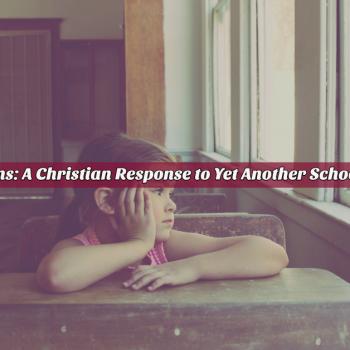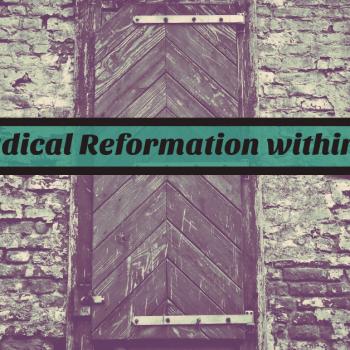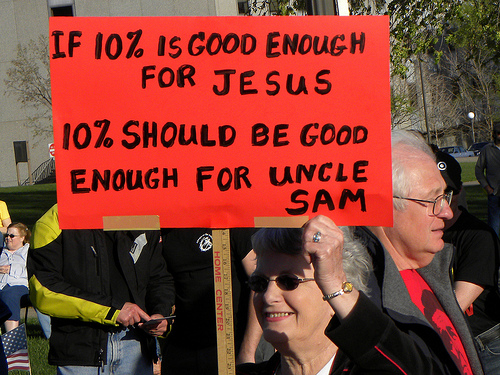What is Christian Reconstructionism?
by Paul McGlasson
You may not be familiar with the terminology, but you know the ideas.
Christian Reconstructionism is a powerful mix of religious and political ideas gaining enormous strength in the American church and society. Ideas like:
- Christians have a unique “worldview” with unique access to universal truth
- “Christian laws” should be put in place at local, state, and federal levels
- Christianity and American culture are two sides of the same coin
- The proper, God-given role of Christians is to dominate the earth
Ok, let me explain.
As a pastor in a local congregation I began to notice the growing buzz surrounding these ideas, along with serious confusion about what it all means. As a theologian, I began to consider the possibility that the time had come for serious theological testing of these main ideas.
I was still thinking about the possibility when Governor Rick Perry of Texas launched his candidacy for the presidency of the United States with a prayer rally in Houston, Texas, in August 2011. It was called “The Response.” It was designed as a Christians-only effort to call on divine support for the candidacy, and to “claim” the United States for Christianity. What is not so well known is that it was organized by a group associated with Christian Reconstructionism: The New Apostolic Reformation.
So, here are some—brief—responses to the above ideas (for a more in-depth theological critique, see my new book No! A Theological Response to Christian Reconstructionism).
Do Christians really have a “worldview” that includes everything? The friends of Job certainly thought so. According to their “worldview,” if Job suffered, it must be because he did something wrong. Why else would God punish him? But when God comes onto the scene at the end of the book, he doesn’t merely correct their false worldview, he condemns the very notion that faithful people have a worldview to begin with. God exclaims: Why, they can’t even explain the exotic grandeur of a hippopotamus (Job 40: 15 ff.); how are they going to claim to know every fact in the universe? The fact is, according to the Bible, faithful people don’t know everything.
Do Christians really have a biblical mandate to turn the judicial code of the Old Testament into the civil law of society? This would mean the death-penalty for homosexuals and adulterers; this would mean only Christian judges and congressional representatives. In fact, only Christians could vote. Christians could get reduced loan rates, while non-Christians must pay full price, and so forth and so on. Now, the issue is not the authority of the Old Testament for Christians, which I affirm along with the mainstream church. The issue is the twofold rule of love for God and neighbor, which Jesus himself, the true Interpreter of the Old Testament, gives to guide us in applying it to daily life.
Is Christianity American, and America Christian? I am not convinced. First of all, the early puritans did not leave a secular country to found a Christian nation; they left a Christian nation to found a free nation. And what about the miraculous growth of global Christianity, perhaps the miracle of our time? Christianity is not American; it is Ghanaian, Nigerian, Chinese, South Korean, Chilean, Mexican, Polish, etc. It is all of these, and none of these; because it is centered in the risen Christ alone, not in any geographical center. Try telling a faithful servant of the risen Christ in Botswana that Christianity belongs to America!
Are we as Christians really here to dominate? This one was the easiest question to answer of all, because the entire earthly life of Christ cries out differently. We are here to serve, only to serve, until we have nothing left.
Paul McGlasson is the author of No! A Theological Response to Christian Reconstructionism (https://wipfandstock.com/store/No_A_Theological_Response_to_Christian_Reconstructionism) and pastor of First Presbyterian Church in Sullivan, Indiana. He received his MDiv from Yale Divinity School, and his PhD from Yale University in Systematic Theology. Before entering the parish ministry, McGlasson taught theology for several years in college and seminary.











